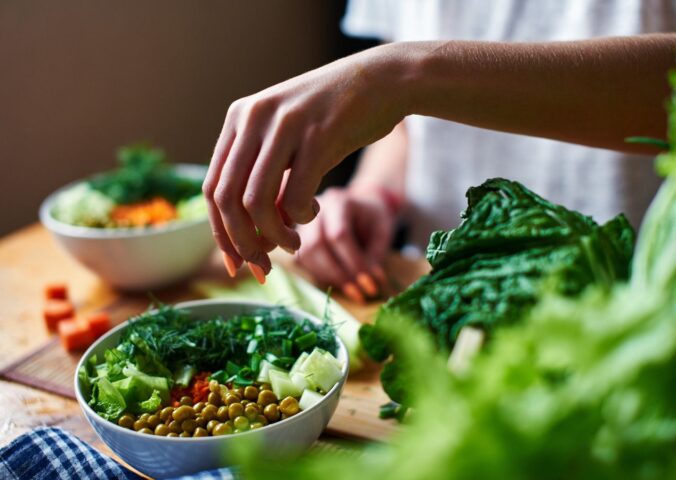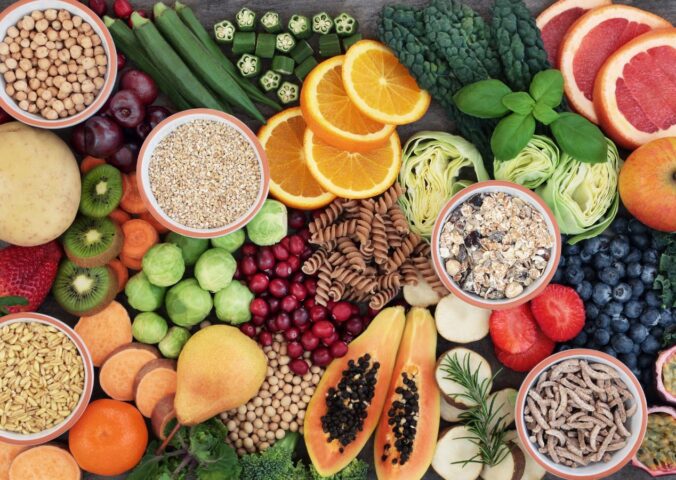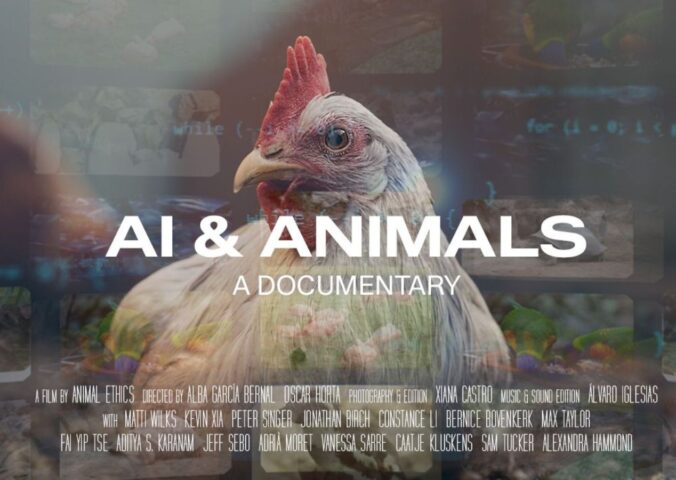Animal Rebellion has unveiled plans to cause mass disruption to the dairy supply chain in the UK this September.
The Extinction Rebellion-affiliated group, which hit headlines earlier this year after activists poured milk onto the floor of Harrods, is aiming to cause a “national crisis” by ensuring supermarket shelves are clear from milk.
“We decided to disrupt dairy because it is the most controversial part of the animal agriculture industry,” an Animal Rebellion spokesperson told Plant Based News.
“It’s the one at the furthest end of the window of conversation. So we hope by disrupting that, we are going to draw attention to the entire food system that’s failing right here by generating as much controversy and conversation as possible.”
Animal Rebellion’s plans are in line with the group’s two key demands. One is to transition towards a plant-based future, and the other is to get the government to rewild the free land.
The campaign comes just weeks after members of Animal Rebellion delivered a formal letter to Downing Street outlining these demands. They wrote in the letter that, if they were not met, they would “go into full civil resistance mode by disrupting the dairy industry.”
Animal agriculture’s impact on the environment
There is no doubt that animal agriculture is catastrophic for the environment. It’s responsible for at least 14.5 percent of greenhouse gas emissions worldwide, and it’s also contributed to around 91 percent of Amazon deforestation. As well as being cleared for grazing livestock, this deforested land is also used to grow animal feed.
Most of the soy fed to animals in the UK comes from South America, meaning many consumers of “British” meat, dairy, and eggs are unknowingly contributing to Amazon destruction.
Around 80 billion land animals are killed for food each year. A vast amount of land and freshwater is used to farm them and grow their feed, and the crops they eat could instead be fed directly to humans.
A 2018 study, which was the most comprehensive of its kind published on the subject to date, found that avoiding meat and dairy is the “single biggest way” to reduce our impact on the earth.
A government resistant to change
Despite this, the UK government has long been resistant to accepting the damage animal agriculture causes.
In October of last year, Rishi Sunak (who is in the running to be the next Prime Minister) told Sky News presenter Kay Burley that he “isn’t telling anyone to eat less meat.”
He was speaking in response to a report from chief scientific adviser Patrick Vallance, who said that people need to change their diet and flying habits in order to tackle the climate crisis.
In July of this year, environment secretary George Eustace said that people won’t be told to eat less meat to combat global warming, as humans are “ultimately omnivores.”
“The government is very explicit in saying that from an environmental perspective, we’re not telling people that they shouldn’t eat meat,” he told the Lords Environment and Climate Change Committee (ECCC) inquiry.
The UK government gives out millions of pounds in subsidies to farmers each year, which critics have claimed is helping to prop up an ailing and unsustainable industry. These subsidies ensure that meat products are cheap, and they often mean that animal products are more accessible than fruits, vegetables, and other plant-based foods.
Speaking about why the government may be so resistant to change, Animal Rebellion’s spokesperson said: “Culturally, telling people what they can and can’t eat is incredibly difficult.”
“The big thing that the government is missing is the fact that they are already dictating what the public eats through the system of subsidies that artificially makes planet wrecking meat and dairy cheap.”
Animal Rebellion’s tactics
Animal Rebellion, which only engages in nonviolent protests, says that “civil disobedience” is at the core of its strategy.
It focuses on actions “with higher potential consequences,” which it defines as arrest or jail time. It also promotes “above the ground” civil disobedience in full public view.
Animal Rebellion has previously used blockade-style tactics to disrupt supply chains of animal products, while also encouraging conversation and press attention.
In July of this year, seven activists were arrested after the group camped outside one of Mcdonald’s main UK suppliers. After just one day of protest, branches of the fast-food chain experienced shortages of burgers and other food.
In a statement at the time, Animal Rebellion said it would stay “as long as needed to cause massive disruption.” It added that it would end the blockade if McDonald’s made a commitment to “becoming 20% plant-based within one year.” The protestors were subsequently removed by police after three days.
In the first two weeks of September, Animal Rebellion aims to “bring the dairy supply to a stand-still.” Around 500 people will participate in protests across the country.
For more information on Animal Rebellion, visit its website.






